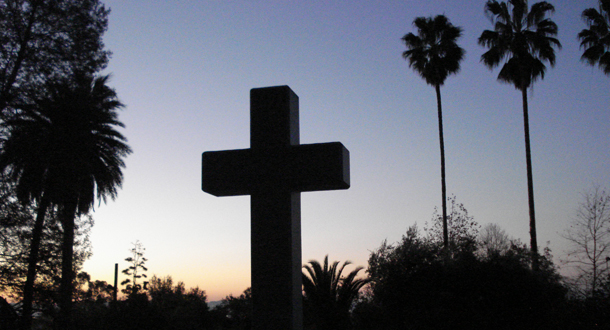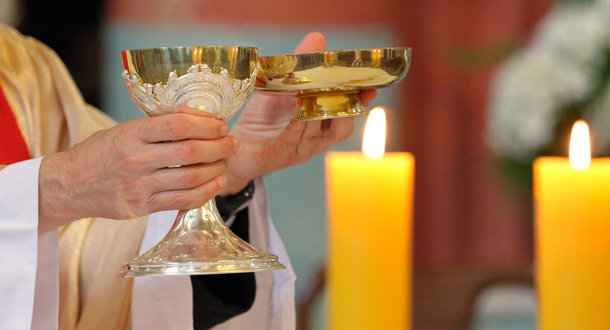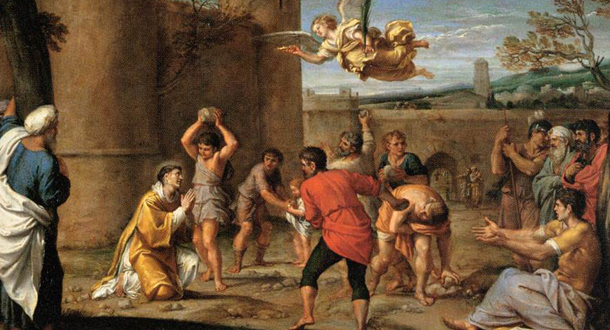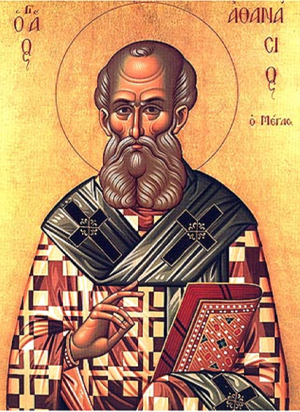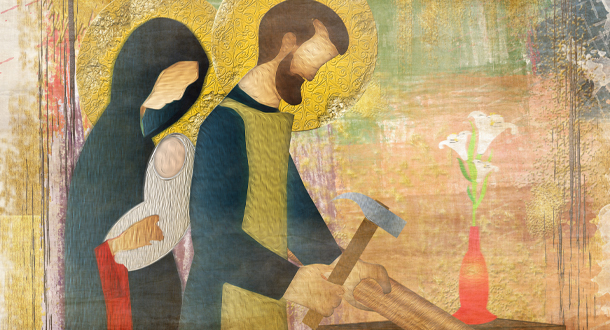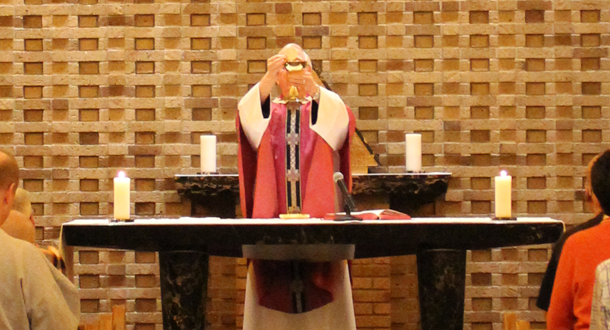
Scripture:
Reflection:
It is one of those amazing Spring mornings when the sunlight glistening off the dew on the grass and the budding tree branches waving in the warm morning breeze that swells the heart and makes us want to cry out with joy for our creation. “Let all the earth cry out to God with Joy”. Psalm 66
1970. Second week of boot camp. We were given a brief break in our intense training schedule to attend Sunday mass at the base chapel. I sat in the pew glancing around at two hundred or so recruits, all of us in our newly buzzed haircuts and still new uniforms, looking like identical green pickle men. Father Lieutenant Colonel Somebody finished reading the gospel and began his sermon with words that stuck with me all these years:
“‘There are no atheists in foxholes,’ so, I presume that’s why most of you are here.” It was funny but so very true. Circumstances, either by choice or the draft, had driven us to seek the comfort of our faith in God’s love. Jesus speaks about our being drawn by God to a belief in Him. It is through God’s influences that we are able to grasp Truth, which is God.
These influences can be as subtle as quiet moments of contemplation of the night sky, realizing that there must be something greater than ourselves; an uncreated Creator. Or an influence might be a circumstance that beats us completely down, like the death of a loved one, a sudden serious illness, or perhaps just the accumulated challenges of daily life. In these moments of reflection or dark times of pain and sorrow, we are drawn by God to instinctively seek to understand His plan and our place in it,
Jesus tells us that no one can approach God the Father except through Him. But we are drawn by God to seek our Redeemer. Pride can make us believe not only that we don’t need God, but even cause doubt as to His existence. Mankind has become so sophisticated and knowledgeable that we no longer need the “crutch” of religion, faith, or God.
Despite the vain blindness caused by Intellectualism which shrouds from us our true place in Existence, we are drawn to Truth through all our circumstances called Life. The longing to know and be reunited with our Creator is part of who we are as a species created in His image and likeness. We humbly seek our Redeemer and through Him come to know Truth, which is God.
Ray Alonzo is the father of three children, grandfather of two, and husband to Jan for over 45 years. He is a USN Vietnam Veteran, and a 1969 graduate of Mother of Good Counsel Passionist Prep Seminary. Ray currently serves on the Passionist Alumni Council.

